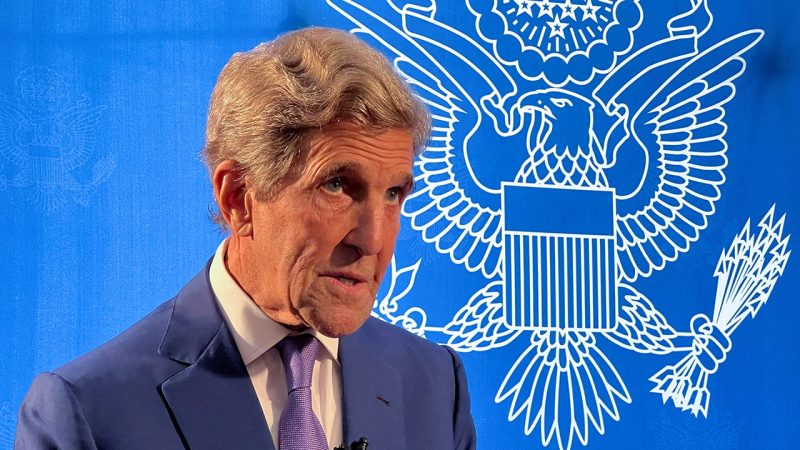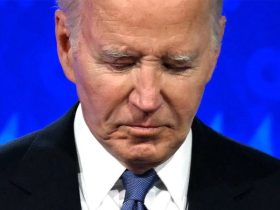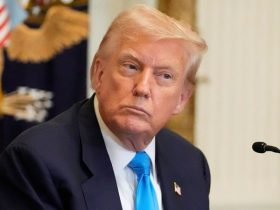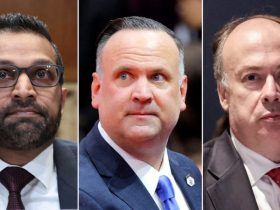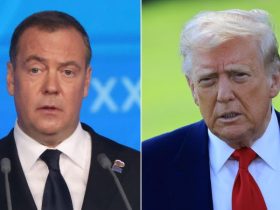U.S. Climate Envoy John Kerry told the World Economic Forum in Davos, Switzerland, on Wednesday that the fight against climate change will only succeed if people around the world take on a wartime footing and accelerate action to curb carbon emissions.
When asked if the world will meet the shared goal of limiting the global temperature increase to 1.5 Celsius by 2032, he said that target won’t be met given the current amount of effort being made.
‘We can’t hit 1.5,’ he said. ‘We’re not on track to do it now, and it’s not clear, absolutely clear that we will get on track.’,
‘We have to right now be deploying the largest solar field in the world, every day, for the next years in order hit the 1.5,’ he added. ‘We have to be deploying renewables six times faster than we are today.’
‘We can do this, but there is not yet the kind of commitment, broadly, that is necessary to make it happen,’ Kerry said.
He said much more ‘collective will’ is needed ‘as if we were at war and ready to turn factories into solar panel producers. I think some of that is what we need.’
Kerry told the World Economic Forum on Tuesday that another key to fighting climate change is ‘money, money, money, money, money, money, money.’ On Wednesday, he said governments need to find a way to encourage investment in green technology companies even when they are ‘slightly riskier.’
But Kerry said government can only do so much, and that it’s time to lean on private companies to fund the green revolution. He said even the Inflation Reduction Act, which promised hundreds of billions to fight climate change, isn’t enough.
‘All of us need to be doing even more,’ he said. ‘Frankly, we wanted to do more than what we’ve already done in the Inflation [Reduction] Act, which is extraordinary. President Biden started at $1 trillion plus.’
‘No government is going to solve this problem,’ he added. ‘Let’s understand that. No government has enough money to plug those trillions and do what we have to do. So like it or not, we must find a way to create the incentives that bring the private sector to the table.’
He said another key is getting governments to speed up decisions to allow for the installation of green infrastructure.
‘We don’t have time to do business as usual,’ he said. ‘You cannot take 10 years with endless litigation to decide whether or not you’re going to deploy a wind farm in a place where it obviously makes sense and where other people are deploying.’

